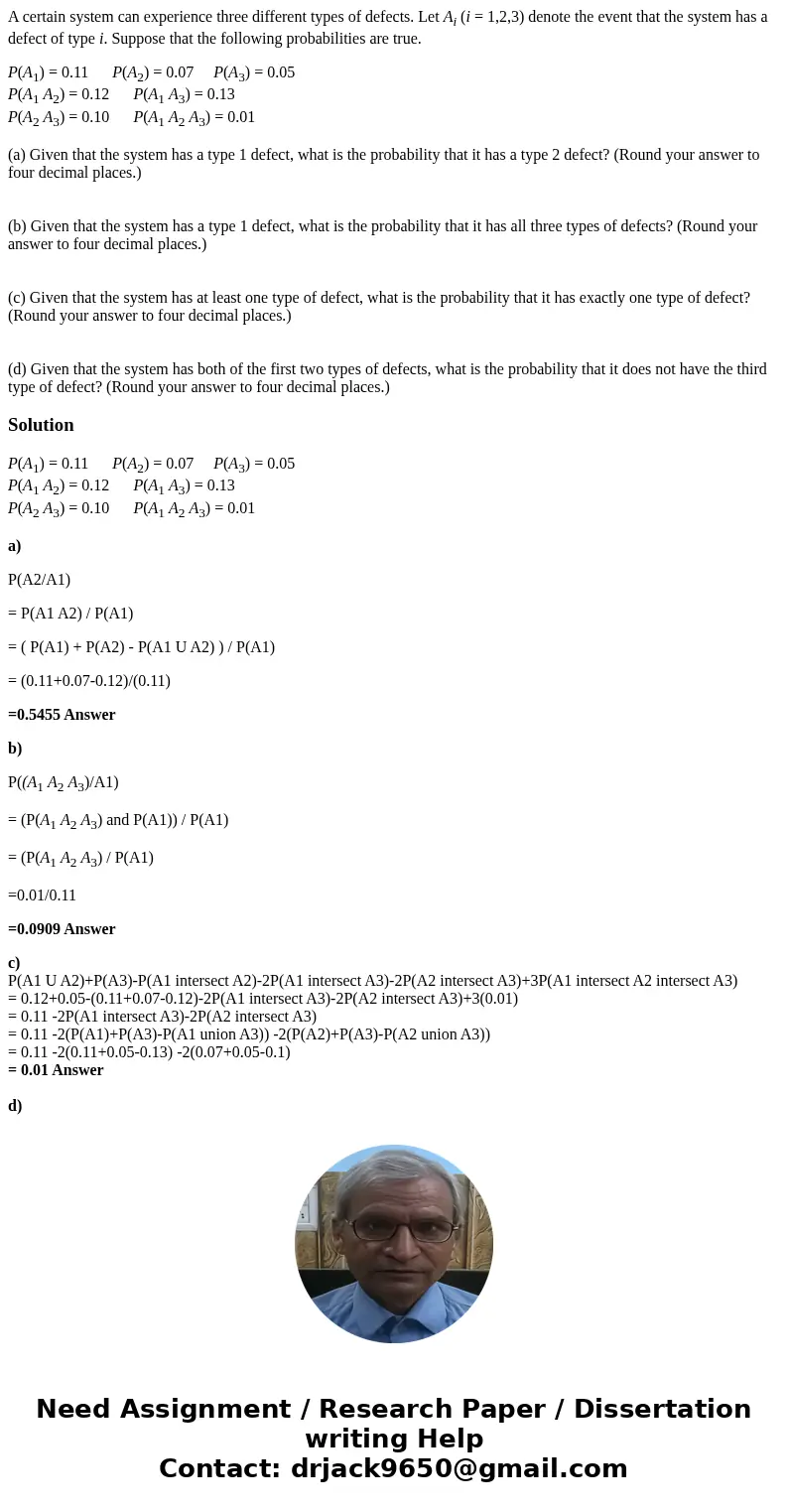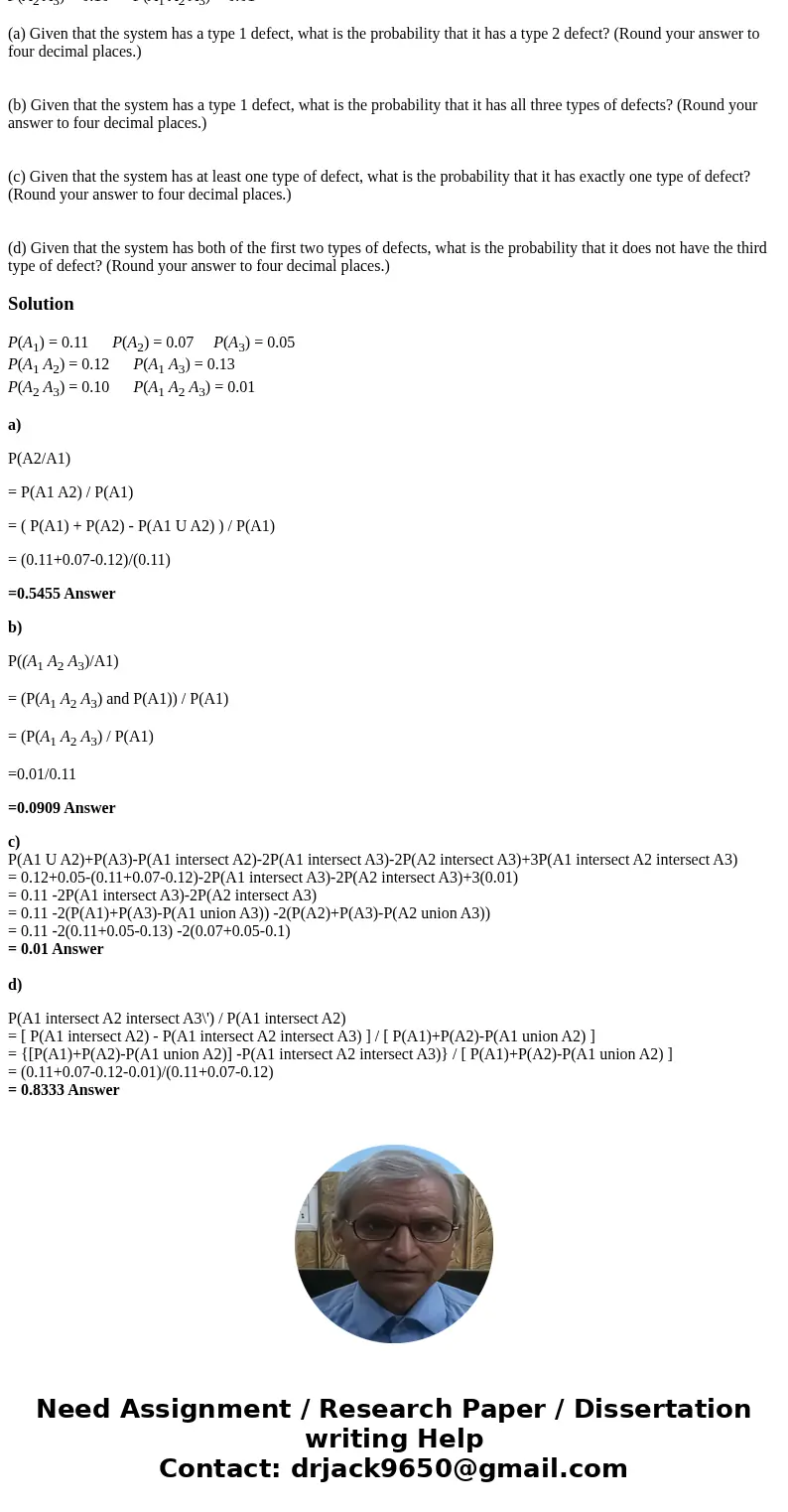A certain system can experience three different types of def
A certain system can experience three different types of defects. Let Ai (i = 1,2,3) denote the event that the system has a defect of type i. Suppose that the following probabilities are true.
P(A1) = 0.11 P(A2) = 0.07 P(A3) = 0.05
P(A1 A2) = 0.12 P(A1 A3) = 0.13
P(A2 A3) = 0.10 P(A1 A2 A3) = 0.01
(a) Given that the system has a type 1 defect, what is the probability that it has a type 2 defect? (Round your answer to four decimal places.)
(b) Given that the system has a type 1 defect, what is the probability that it has all three types of defects? (Round your answer to four decimal places.)
(c) Given that the system has at least one type of defect, what is the probability that it has exactly one type of defect? (Round your answer to four decimal places.)
(d) Given that the system has both of the first two types of defects, what is the probability that it does not have the third type of defect? (Round your answer to four decimal places.)
Solution
P(A1) = 0.11 P(A2) = 0.07 P(A3) = 0.05
P(A1 A2) = 0.12 P(A1 A3) = 0.13
P(A2 A3) = 0.10 P(A1 A2 A3) = 0.01
a)
P(A2/A1)
= P(A1 A2) / P(A1)
= ( P(A1) + P(A2) - P(A1 U A2) ) / P(A1)
= (0.11+0.07-0.12)/(0.11)
=0.5455 Answer
b)
P((A1 A2 A3)/A1)
= (P(A1 A2 A3) and P(A1)) / P(A1)
= (P(A1 A2 A3) / P(A1)
=0.01/0.11
=0.0909 Answer
c)
P(A1 U A2)+P(A3)-P(A1 intersect A2)-2P(A1 intersect A3)-2P(A2 intersect A3)+3P(A1 intersect A2 intersect A3)
= 0.12+0.05-(0.11+0.07-0.12)-2P(A1 intersect A3)-2P(A2 intersect A3)+3(0.01)
= 0.11 -2P(A1 intersect A3)-2P(A2 intersect A3)
= 0.11 -2(P(A1)+P(A3)-P(A1 union A3)) -2(P(A2)+P(A3)-P(A2 union A3))
= 0.11 -2(0.11+0.05-0.13) -2(0.07+0.05-0.1)
= 0.01 Answer
d)
P(A1 intersect A2 intersect A3\') / P(A1 intersect A2)
= [ P(A1 intersect A2) - P(A1 intersect A2 intersect A3) ] / [ P(A1)+P(A2)-P(A1 union A2) ]
= {[P(A1)+P(A2)-P(A1 union A2)] -P(A1 intersect A2 intersect A3)} / [ P(A1)+P(A2)-P(A1 union A2) ]
= (0.11+0.07-0.12-0.01)/(0.11+0.07-0.12)
= 0.8333 Answer


 Homework Sourse
Homework Sourse